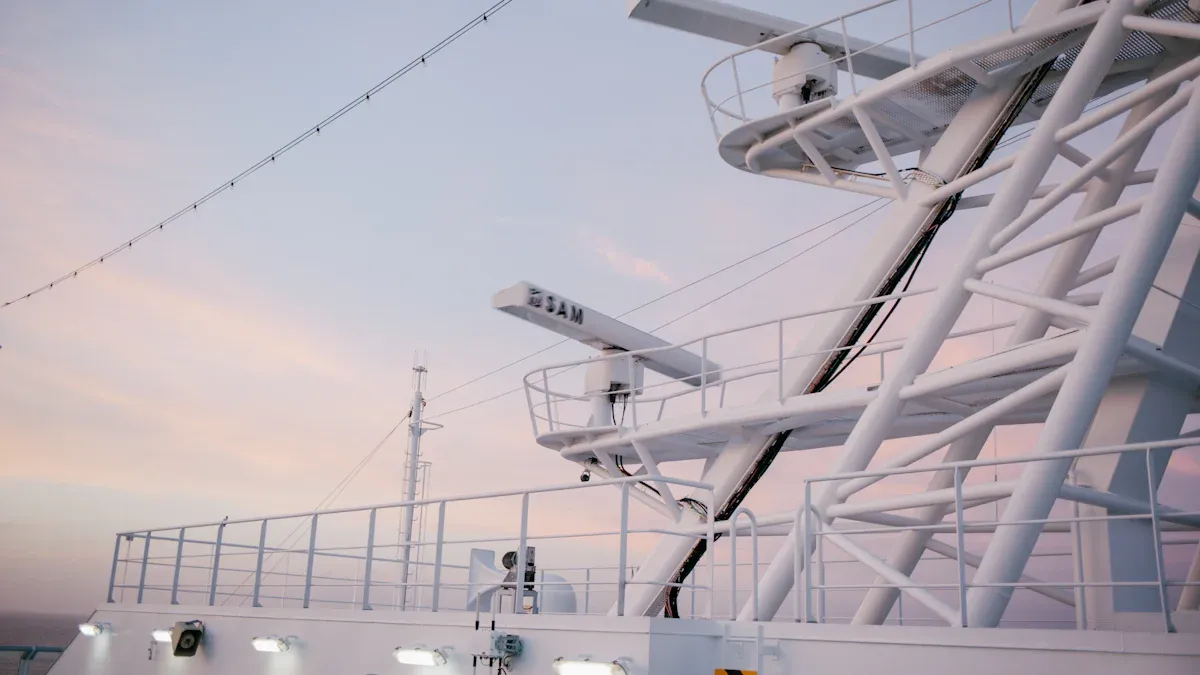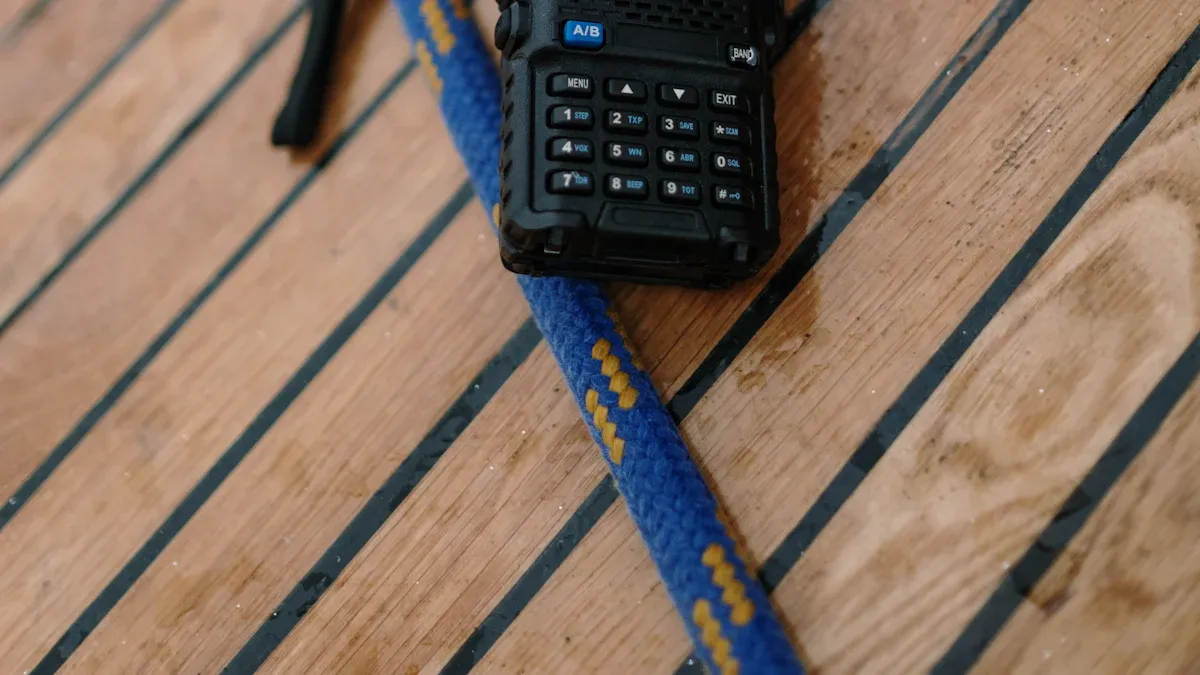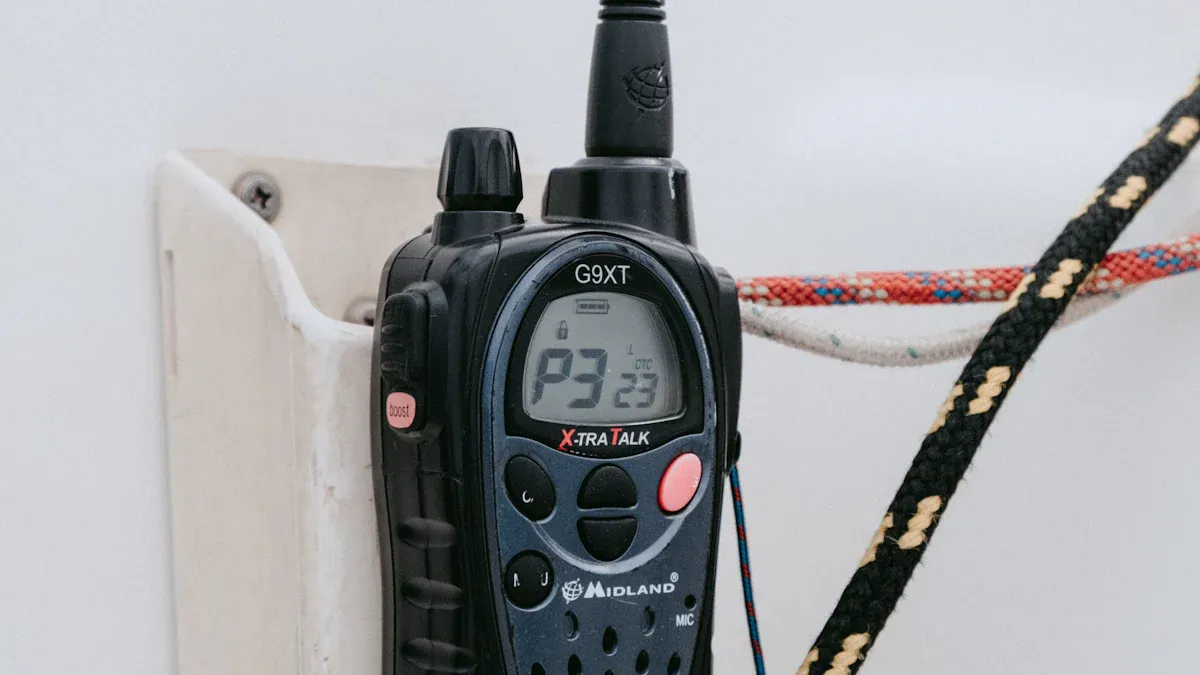
Reliable communication is the backbone of the shipping industry telephone sector. It ensures smooth operations and enhances safety at sea. Harsh weather, remote locations, and strict regulations make maritime communication challenging. Advanced marine industrial telephones tackle these issues with innovative features. In 2024, the shipping industry accounted for over 45% of the marine communication market, proving the demand for secure and efficient systems. From waterproof industrial telephones to mining industrial telephones, these devices are built to withstand extreme conditions while keeping crews connected.
Criteria for Evaluating Marine Telephone Suppliers
Durability and Resistance to Harsh Environments
Marine telephones must endure some of the toughest conditions on Earth. Saltwater, high humidity, and extreme temperatures can wreak havoc on equipment. Suppliers that offer devices with IP67 or higher ratings ensure protection against water and dust. Many models are built with corrosion-resistant metals and reinforced plastics, making them ideal for long-term use in maritime environments. Weatherproof telephones are especially important for outdoor installations on ships or in industrial settings.
Tipp: Look for suppliers that provide field-tested devices proven to withstand harsh maritime conditions. This ensures reliability when it matters most.
Compliance with Maritime Standards and Certifications
Adherence to international standards is non-negotiable in the shipping industry. Suppliers must comply with conventions like SOLAS, SAR, and STCW to guarantee safety and operational efficiency. For example, SOLAS sets rules for ship design and communication systems, while SAR ensures readiness for emergencies. Regular audits and performance reviews help verify compliance.
| Convention | Purpose | Main Rules |
|---|---|---|
| SOLAS (1974) | Protects lives at sea through safety regulations. | Covers ship design, fire safety, and radio communication. |
| SAR (1979) | Coordinates global search and rescue efforts. | Ensures emergency preparedness. |
| STCW (1978) | Sets crew qualification standards. | Requires proper training and certification. |
Technological Features and Connectivity Options
Modern shipping industry telephones go beyond basic communication. Satellite systems, IoT integration, and digital selective calling have revolutionized maritime operations. These technologies enable real-time data sharing, emergency management, and improved navigation. Suppliers offering advanced connectivity options, such as maritime Wi-Fi and cloud-based platforms, help vessels stay connected even in remote areas.
Enhanced communication tools not only improve safety but also boost operational efficiency, making them a must-have for any fleet.
Customer Support and After-Sales Service
Reliable customer support can make or break a supplier relationship. In the shipping industry, where downtime can be costly, quick and effective after-sales service is essential. Suppliers with high customer satisfaction ratings—77% of customers rate their experience 8 or above—stand out in this competitive market. Timely responses, transparent communication, and robust warranties are key factors to consider.
Cost-Effectiveness and Value for Money
While quality is crucial, cost-effectiveness cannot be ignored. Suppliers that manufacture their own components often have better control over pricing and quality. This translates to affordable yet durable products. Buyers should evaluate the total value offered, including features, durability, and after-sales support, to ensure they get the best deal.
Leading Suppliers of Shipping Industry Telephones in 2025

Alphatron Marine
Alphatron Marine has built a strong reputation for delivering high-quality communication solutions tailored to maritime needs. Their marine telephones are known for their durability and advanced features. Alphatron focuses on integrating cutting-edge technology, such as satellite connectivity and IoT capabilities, into their products. This makes them a preferred choice for vessels requiring reliable and modern communication systems. With a significant presence in the commercial shipping segment, Alphatron continues to lead the way in innovation.
CROSSCALL
CROSSCALL specializes in rugged telecommunication devices designed for extreme environments. Their marine telephones are waterproof, shockproof, and built to last. CROSSCALL’s products are particularly popular in North America, where the shipping industry holds over 40% of the market share. Their focus on user-friendly designs and robust performance has earned them a loyal customer base. CROSSCALL’s commitment to quality ensures their devices perform seamlessly, even in the harshest maritime conditions.
Iridium
Iridium stands out for its global satellite communication network. Their marine telephones provide uninterrupted connectivity, even in the most remote ocean regions. This makes them a top choice for vessels operating in isolated areas. Iridium’s focus on satellite communication aligns with the growing demand for advanced connectivity, which accounts for over 30% of the market. Their innovative solutions enhance safety and efficiency, making them a trusted name in the shipping industry.
Ningbo Joiwo
Ningbo Joiwo offers a diverse range of industrial telephones, including specialized models for the shipping industry. Their products are designed to handle harsh environments, ensuring reliability and durability. Ningbo Joiwo manufactures most of its telephone components in-house, giving them an edge in cost control and quality assurance. Their expertise extends to emergency communication systems, explosion-proof telephones, and VoIP solutions. With a strong presence in the USA, Europe, and the Middle East, Ningbo Joiwo continues to gain recognition for its high-quality offerings.
Eaton
Eaton is a global leader in industrial communication systems, including marine telephones. Their products are known for their compliance with international maritime standards and certifications. Eaton focuses on delivering reliable and efficient communication solutions that enhance safety and operational performance. Their marine telephones are widely used in the commercial shipping segment, which accounts for over 53% of the market. Eaton’s commitment to innovation and quality makes them a trusted supplier in the industry.
Comparison Table of Top Suppliers

Key Features and Specifications
| Feature/Specification | Description |
|---|---|
| Durability and Weather Resistance | Systems designed to withstand extreme conditions, including saltwater exposure and high humidity. |
| Range and Signal Strength | Systems must maintain strong signals over long distances, utilizing advanced technologies. |
| Compliance with Standards | Adherence to IMO, ISO, and OSHA standards for seamless integration and operational reliability. |
Note: These features are essential for ensuring reliable communication in the shipping industry, where harsh environments and long distances are common challenges.
Pros and Cons of Each Supplier
Each supplier brings unique strengths to the table. Alphatron Marine excels in integrating cutting-edge technology, making it ideal for modern fleets. CROSSCALL offers rugged designs that thrive in extreme conditions, appealing to users who prioritize durability. Iridium’s global satellite network ensures uninterrupted connectivity, even in remote areas. Ningbo Joiwo stands out for its cost-effective solutions and in-house manufacturing, which ensures quality control. Eaton delivers reliable systems with a strong focus on compliance and safety.
However, the effectiveness of these suppliers often depends on the buyer-supplier relationship. Trust and commitment play a significant role in operational success. Suppliers like Iridium and Alphatron, known for their innovation, may require higher investments, while Ningbo Joiwo offers budget-friendly options without compromising quality.
Pricing and Warranty Information
Pricing varies based on features and specifications. Suppliers like Ningbo Joiwo, with in-house manufacturing, often provide cost-effective options. CROSSCALL and Alphatron Marine cater to premium markets, offering advanced features at higher price points. Warranty periods typically range from 1 to 3 years, with some suppliers offering extended warranties for an additional fee. Buyers should evaluate their needs and budget to find the best fit.
Tipp: Always inquire about warranty terms and after-sales support to ensure long-term reliability.
Choosing the right supplier for a shipping industry telephone ensures reliable communication and operational efficiency. Buyers should focus on durability, compliance, and cost-effectiveness. Tailored solutions often lead to better delivery times and reduced costs. Evaluating specific needs and consulting suppliers helps businesses enhance their competitive edge in the maritime sector.
FAQ
What makes marine telephones different from regular telephones?
Marine telephones are built to withstand harsh environments. They feature waterproof designs, corrosion resistance, and compliance with maritime standards for reliable performance at sea.
How can buyers ensure they choose the right supplier?
Buyers should evaluate durability, compliance, and cost-effectiveness. Consulting suppliers for tailored solutions ensures the best fit for specific maritime needs.
Are marine telephones compatible with modern communication systems?
Yes, most marine telephones integrate with satellite systems, VoIP, and IoT platforms. This ensures seamless connectivity and advanced communication capabilities for maritime operations.
Tipp: Always verify compatibility with your vessel’s existing systems before purchasing.


